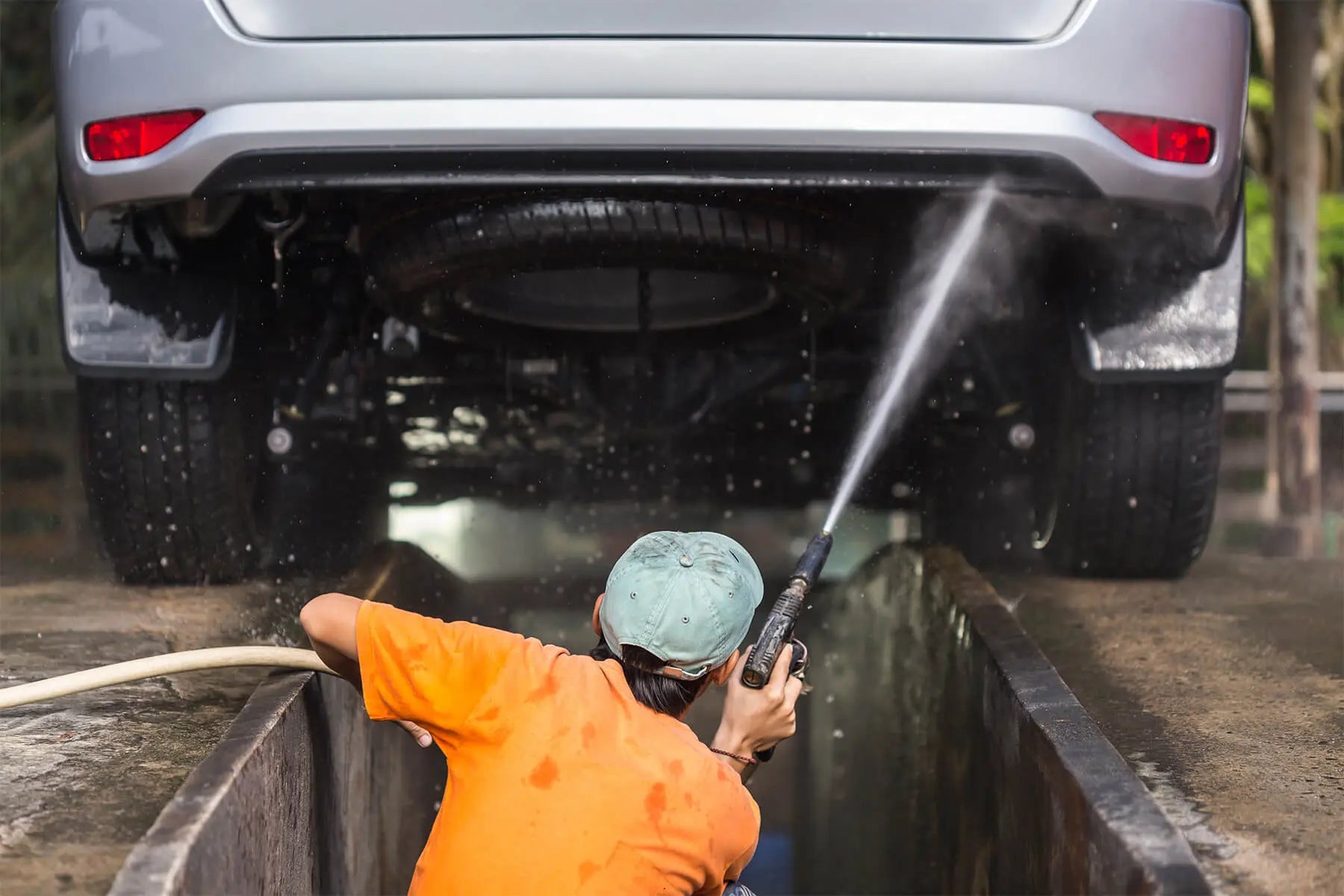
Before discussing the best brake cleaner choices, let's answer this simple question: What is brake cleaner?
A brake cleaner solvent is commonly used to remove brake dust and other grime from a car's wheel. It's also a fantastic method for removing stubborn dirt and grime from fasteners like bolts, nuts, and screws. It can also clean the engine, metal parts, and brake disks. A brake cleaner is another excellent option for removing oil stains from your car or garage floor.
However, there is a serious issue with brake cleaners. Brake cleaner is frequently toxic owing to its solvent nature, but it also includes ethylene glycol, which is extremely dangerous and lethal when swallowed. It may also contain fluorocarbons, which are exceedingly poisonous in gas form, so we are looking for alternatives! Read on to learn more in this article of shine armor blog!
But why should you look for alternatives and avoid chemical brake cleaners?
So, we've established that brake cleaner is a solvent-based substance designed to clean the various parts of a braking system of grime, oil, and dust. Toxic and combustible compounds can be found in it, including acetone, toluene, and xylene.
However, several environmental and health dangers are associated with utilizing brake cleaners. If not disposed of properly, the chemicals in brake cleaner can seep into the ground and pollute water supplies. When inhaled or swallowed, they can trigger symptoms like dizziness, nausea, and irritation of the respiratory and skin systems.
Where should we apply the brake cleaner?
It is common practice to spray brake cleaner onto brake parts and then clean them with a dry rag. Brake cleaner can be challenging to remove once it has dried, so removing it as soon as possible is crucial. You can clean the rest of your car with a brake cleaner, including the engine, but you shouldn't use it on the painted areas.
7 Best Brake Cleaner Substitutes
Some other options are as effective and far safer than brake cleaners. Here are seven high-quality options to consider instead of brake cleaners.
Baking Soda
Baking soda is an all-natural cleaner. It effectively eliminates dirt and grime and is far safer than brake cleaner. Make a paste of baking soda and water, then apply the paste to a clean rag and wipe down the brake components.
White Vinegar
If you want a low-maintenance solution, white vinegar is another fantastic choice and alternative!
The process is so easy. You just need to soak a cloth or fabric in white vinegar and wrap it around the dirty spot. Then, you'll need to let it sit overnight. The following day, any stubborn stains should be easy to wipe away.
Lemon Juice
The third alternative for brake cleaner is lemon juice. Simply spray a liberal amount on the dirty area and let it sit for an hour before cleaning. After waiting an hour, the lemon juice can be wiped away with a dish towel. If you come across some very tough filth or brake dust, you can always boil up the lemon juice and make a thicker mixture. You can then reapply this to the affected region to aid in its reduction.
Alcohol
Alcohol cleans brake parts thoroughly without leaving any residue behind, even after repeated use. Use the rag dampened with rubbing alcohol to clean the brake parts.
Shop by category:
- Buy exterior products from shine armor
- Buy interior products from shine armor
- Buy Best car detailing kit
A Mixture of Dish Soup and Water
If you don't want to use harsh chemicals, a dish soap and water solution can work just as well as brake cleaning. You just need some dish soap and water and use a clean towel to apply the mixture, and it's the solution to your brakes. Rinse the brakes well with water afterward.
Acetone
An alternative to brake cleaner that is both safe and effective is acetone. This powerful solvent easily removes brake fluid, grease, and oil. Aceton is a much more secure alternative to gasoline-based brake cleaners.
Turpentine
Turpentine, a natural oil, has been used for hundreds of years as a paint thinner and, of course, solvent. While applying turpentine to your brakes may seem like a good idea, you should also be aware of the potential dangers. Wearing gloves and eye protection is recommended when working because it can cause irritation to the skin and eyes.
Eco-Friendly Brake Cleaning Options
We discussed chemical brake cleaners and how to use them; almost all are environmentally friendly. Suppose you are looking for environmentally friendly or eco-friendly options other than those mentioned above; you can find them with a simple search on the Internet, but here are some examples: BioChem (Biobrake), Envirofluid (Purasolve Brake Cleaner).
Conclusion
Cleaning and maintaining brake parts with brake-cleaning chemicals is a standard practice. Chemicals also can be dangerous to your health and destructive to the environment. Chemicals designed to clean brakes often contain solvents that might eventually degrade brake parts, making them less safe and reliable to use. Cleaning brake components using natural alternatives or substitutes can be just as effective without harming humans or the environment. So don't forget that regular cleaning and inspections are essential to maintain your brakes. Good Luck!
Related blog posts:





